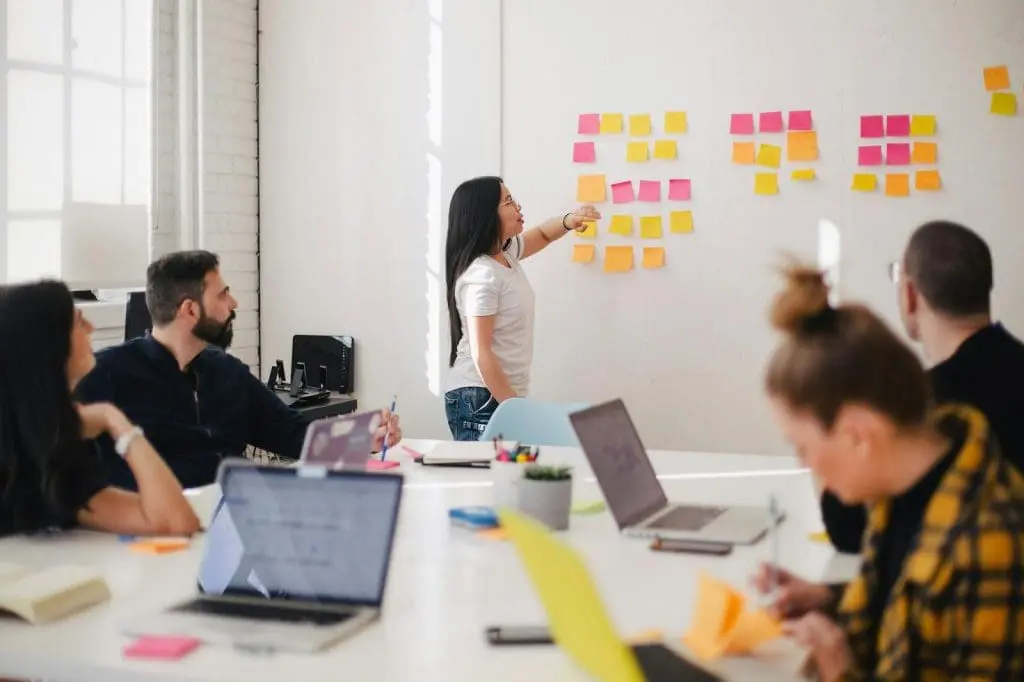Continuous employee skills and knowledge development are not only a major benefit that can boost the productivity of a business but also a must in a time when the competition is as fierce as ever.
And let’s face it, innovation and competitiveness are much more achievable when a company values learning. After all, statistics show that strong learning cultures are 92% more likely to innovate and 52% more productive.
Here are several strategies that can significantly enhance the skills of your employees, increasing their output and job satisfaction.

Implement Tailored Learning Programs
Creating individualized learning programs that match both individuals’ career ambitions and the organization’s objectives is critical.
Begin by identifying your team’s unique skill gaps, and then develop learning courses to meet these needs. To accommodate a wide range of learning styles, combine online courses, workshops, and seminars.
To remain current and interesting, these programs should be updated on a regular basis depending on feedback and changing industry norms. Customizing learning experiences ensures that every individual has the opportunity to improve in areas that are relevant and useful to their professional development.
Offer Learning Stipends and Incentives
Offering your employees a stipend is a straightforward and effective way to encourage them to pursue professional development. Set aside an annual budget for each employee to spend on their preferred instructional materials, courses, conferences, or workshops. This financial support removes any barriers to learning and demonstrates the company’s commitment to its employees’ personal and professional development.
Furthermore, providing incentives for completing specific training programs or obtaining certifications can increase participation and promote lifelong learning. This method not only empowers people to take care of their own growth but also provides the firm with a constantly expanding skill base.
Develop a Culture of Continuous Learning
It is critical to cultivate a corporate culture that recognizes and promotes ongoing learning. Encourage employees to make learning a regular part of their job, rather than an occasional activity.
To help reinforce this habit, recognize and praise learning and improvement. Create venues for collaborative learning, such as “learning lunches” when team members present on current or interesting topics. This technique not only improves abilities but also encourages a sense of community and collaborative progress.
Utilize Mentoring and Coaching
Mentoring and coaching are extremely effective instruments for personal and professional development. Pairing less experienced employees with seasoned mentors facilitates the transfer of key knowledge and skills throughout the business.
Furthermore, hiring external coaches can give a new viewpoint and specific knowledge that benefits the entire team. This one-on-one attention assists employees in overcoming specific problems and accelerates their development by giving coaching targeted to their individual needs.
Utilize Technology and Innovative Tools
Accept the latest technology that enables skill improvement. From complex e-learning platforms and virtual reality experiences to mobile learning apps, technology may help you acquire new skills interactively and engagingly.
These systems can imitate real-life circumstances or offer microlearning—small, digestible chunks of material that are easier to handle and recall. This not only makes learning more accessible but also more flexible, as employees can learn at their own pace and on their own schedule.

Encourage Knowledge Sharing Among Peers
Make information sharing commonplace in your setting. Peer review sessions are one formal way to do this, but team talks and online forums are more casual ways.
Knowledgeable and connected workers are the outcome of an atmosphere of openness and mutual support that is created when people share what they know. This also speeds up the organization’s acceptance of new concepts and procedures and lessens redundancy in learning sessions.
Conclusion
The ability of a firm to innovate and remain competitive is directly impacted by the substantial improvement of staff skills and knowledge that results from creating an environment where learning and development are valued.
Organizations can establish a robust environment that promotes both professional and personal development by putting in place specialized learning programs, providing learning stipends and incentives, fostering a culture of ongoing learning, using technology, mentoring, and coaching, and promoting peer knowledge sharing.
The focus on creating a learning culture improves performance and increases staff retention and happiness. The comprehensive approach to staff development guarantees that companies stay flexible and progressive in the ever-changing business environment.

